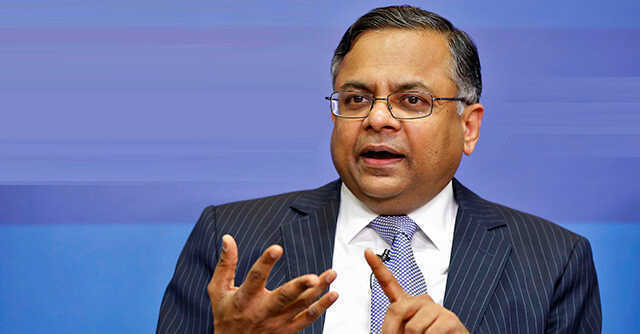
Pandemic accelerated digital adoption but not been equitable: N Chandrasekaran, Chairman Tata Sons


The pandemic has accelerated digital adoption in India but we must realise that “it has not been equitable", according to Natarajan Chandrasekaran, chairman of the Tata Sons board.
“If you take education, all the urban kids who have access to a device or to a digital infrastructure could do online schooling, but equally, the large number of kids in the rural areas who don't have access to devices who didn't have access to the digital infrastructure lost years of schooling,” he added.
Chandrasekaran was in conversation with Anant Maheshwari, president, Microsoft India, at Microsoft’s Future Ready virtual conference on Tuesday.

He insisted that access to healthcare and education should be a national priority and everyone should contribute to it. “The government can put the policy infrastructure but the corporate sector has to play its part,” he said. He also noted that a large section of the population is not participating in the market because of lack of access, adding, “tech will enable that access, and in the process expand the market significantly. More people will come into the formal economy.”
Chandrasekaran feels India will lead the global growth rates significantly for the whole decade. “India's growth is going to be more fundamentally important going forward. Because even if the global growth is going to be good, it's going to be a little bit behind the expected levels of 2021. India has a larger role to play,” he added.
According to him, there are many things going for India. For instance, “The pandemic per se has not really impacted the long-term growth trajectory of India. It has just delayed it. The fundamental factors, whether it is the formalisation of the economy, the youth or more people coming into the middle income, all of these are totally intact.”

Also read: Change is the new normal: Why loyalty will be top of mind for companies in 2022
In October 2021, the International Monetary Fund (IMF) had projected India’s GDP to grow at 9.5% and 8.5% during 2021-22 and 2022-23, respectively, making it one of the fastest-growing economies in the world, Mint reported.
Further, Chandrasekaran stressed the importance of making artificial intelligence (AI) and its subsets such as machine learning (ML) work for the masses. “This view that AI and ML is the software people's job or that ML is for the elite should go. The focus should be on making AI and ML work for everybody, for field workers, truck drivers, all kinds of professionals in urban areas and rural areas,” he added.

Reports suggest that AI adoption can provide a big boost to the economy. According to an August 2021 report by RBSA Advisors, AI adoption can add $90 billion to the Indian economy by 2025.
India doesn't have the time or resources to keep building huge fiscal infrastructure, lamented Chandrasekaran. “If we have to achieve it now or in the near term, the only way is to use the digital connection to expand the capacity and the reach of the limited physical resources we have in terms of infrastructure as well as in terms of knowledge and capability,” he said.
He also highlighted the need to reconstruct the global supply chain, which is currently controlled by a few countries. “India has an important role to play because of the skills, the opportunities and the scale that we have,” he added.

The pandemic revealed the problems in the global supply chain after the supply of several products including semiconductors was disrupted. India has been trying to reduce dependence on electronic imports and has launched production-linked incentive (PLI) schemes to boost local manufacturing of smartphones, TVs, laptops.
